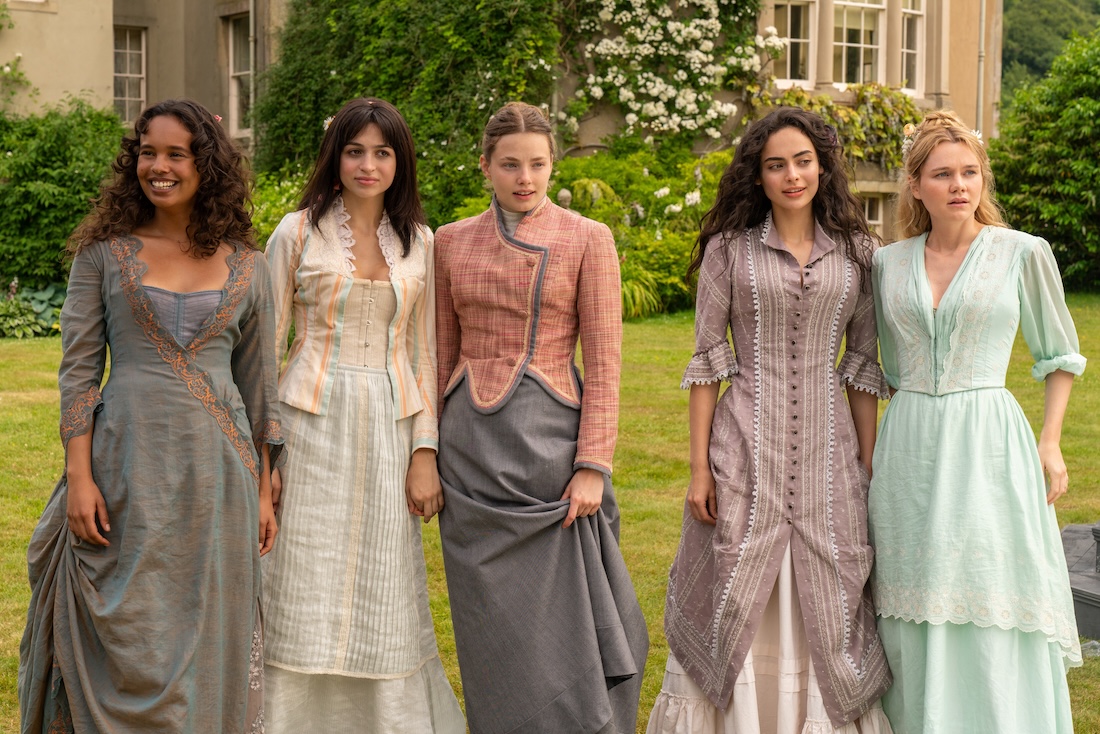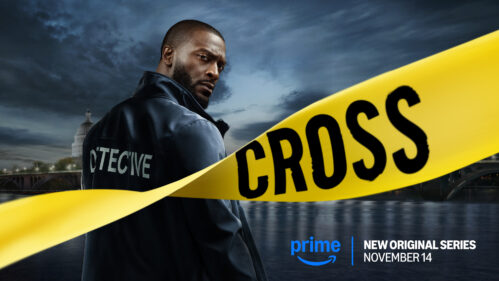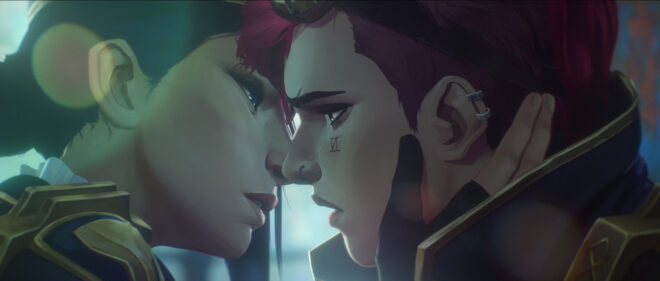"The Buccaneers," the latest period piece series from Apple TV+, knows how to be an intoxicating fantasy, but its real kick comes from its calibrated reality check. Yes, it has period storytelling delights in droves: swooning shots of cliffsides gently kissed by waves, showstopping ball gowns, proposals that are fired off before first kisses, walks on the beach, conversations between two lovers that are packed with wistful ellipses. But in its best moments, this series always asks the realistic price of these thrills, and does so when depicting young American women ensnared by their wishes to join English high society.
This mentality is part of a rebellious approach that makes creator Katherine Jakeways' show surprising and fun for most of its first season, which includes a modern dance-pop score that trades string quartets for 808s heartbeats and bookends with Taylor Swift needle drops. "The Buccaneers" follows in the steps of gleefully anachronistic period pieces like Sofia Coppola's "Marie Antoinette," which keeps it from being stuffy even when it has roughly a thousand affairs of the heart it needs to answer to. And though the performances overall can sometimes be a bit rough due to such a casual, modern approach to dialogue, "The Buccaneers" prevails with its equally giddy and righteous depiction of women realizing high society isn't all that it's cracked up to be.
Based on the last book written by Edith Wharton (though it was incomplete when she died in 1937), this Apple TV+ adaptation centers on Nan St. George, who is played with a crucial balance of naivete and wonder by Kristine Froseth. In a twisting course of events, New Yorker Nan finds herself engaged to a top English bachelor named Theo (Guy Remmers), the Duke of Tintagel. But Nan also has deep chemistry with Guy Thwarte (Matthew Broome), another Englishman and Theo's best friend, but a man who does not have the same status and wealth to offer. It's the kind of ravishing storyline that would make a soft romance on its own, but in the gradually complicated realm of "The Buccaneers," it's an opportunity for striking tonal nuance.

Nan's story is no isolated incident; her friend Conchitta (Alisha Boe) has already met and married the English Lord Marable (Josh Dylan) and gotten pregnant. But Conchitta wonders if the connection is more than just a romance, especially when Marable's mother is such a ruthless hater who writes her off. And like Nan's experience, her sister Ginny (Imogen Waterhouse) also experiences the rush of being proposed to before a first kiss, but in a more upsetting storyline. Ginny's beau, Lord James Seadown (Barney Fishwick), is an icy creep who previously manipulated Nan's friend Izzy (Aubri Ibrag) and has now come for Ginny's hand to control her every move.
The young American women in this story who provide its name are a rock 'n' roll band of friends and sisters, and along with bringing jokes and snowball fights to their new home, they say what's on their minds. That's in stark contrast to what the English do, which is, as Guy perfectly puts it: "We English have a cup of tea, and then we keep it to ourselves." Indeed, the English of "The Buccaneers" well know how to control the game—the men are aware of the advantage they have in courtship, and their parents can affirm their smugness by seeing these young women as unfit in one way or another of marrying into their family legacies and wealth. The women are here because they think it'll be the adventure of their lives, but they don't know exactly what they're getting themselves into. These women will face stories of shame, ugly moments that will make them feel small, and they will decide what they can muster when their spirit is at stake.
The most gripping passages of "The Buccaneers" make you worried about these progressive minds becoming enmeshed in a society that threatens to eat them alive, or worse, losing themselves to a kind of power and status that doesn't serve them. We get a stateside portrayal of this from Christina Hendricks, who plays Nan's quietly defeated mother, Mrs. St. George. She also dreams of being accepted by members of high society and already has her own superficial marriage, though one she is afraid of escaping. That unease that makes "The Buccaneers" intriguing most of all, with so much happiness at stake. The series goes the way of "Bridgerton" and sidesteps tensions about race in this period, but other conflicts are vivid—class, status, and, in the case of Honoria (Mia Threapleton) and Mabel's (Josie Totah) hidden affections, sexuality. You care for all these hopeful lovers—even though the series can spread itself too thin with how many problems they have each—and you believe this show is more about critiquing its indulgences than uplifting them.

The eight-episode season is wisely scripted as a series of gatherings, with each episode revolving around a different decadent occasion. Initially, it's Conchitta's wedding and a debutante ball in the pilot, which becomes our introduction to the mechanical nature of this world. Later gatherings involve a party in the country, an elegant Christmas Eve, and, later, another wedding, albeit without the excitement of Conchitta's.
With direction by Charlotte Regan, Richard Senior, and Susanne White, "The Buccaneers" gets its most style from its production design, including the costumes and sets that provide intoxicating authenticity for such a project. The wooden floors are extra creaky in the sound mix, and the gowns sponsor a color palette seemingly borrowed from the Apple TV+ musical series "Schmigadoon!". Every now and then, the camera will go extra wide, more or less, to show off the sets or the scenery, which can be more impressive than the overall cinematography. But the show does try: There's even a long one-shot moment at a ball Mrs. St. George hosts that doesn't gather the wonder it desires so much as make the camera spin and follow people through another fraught party.
Unfortunately, the series loses a bit of its rebellious spark once it has to act on the different conflicts it has set up. Nan's love triangle, for example, has her more or less losing its energy to push and pull dramatics instead of raising the story's overall intensity. It causes the sixth and seventh episodes to sag, along with the wear from other character arcs (does Lord Richard Marable need a past problem on top of his current marital woes?)
In its season finale, "The Buccaneers" does prove that it has some craftiness to spare, with a surprising cliffhanger that ties together various threads and further complicates the show's sense of victory. Whether or not it's the series finale (should the show not get the renewal it deserves), this season's ambitions capture the bittersweet nature of the Americans' initial fun and give its viewers more to consider than they might expect.
All of Season One was screened for review. The first three episodes of "The Buccaneers" are now playing on Apple TV+, with a new episode premiering each week.












